Residents of chawls and shanties in Dharavi, Bhandup and Versova explain how basic infrastructure works have ground to a complete halt due to the absence of corporators
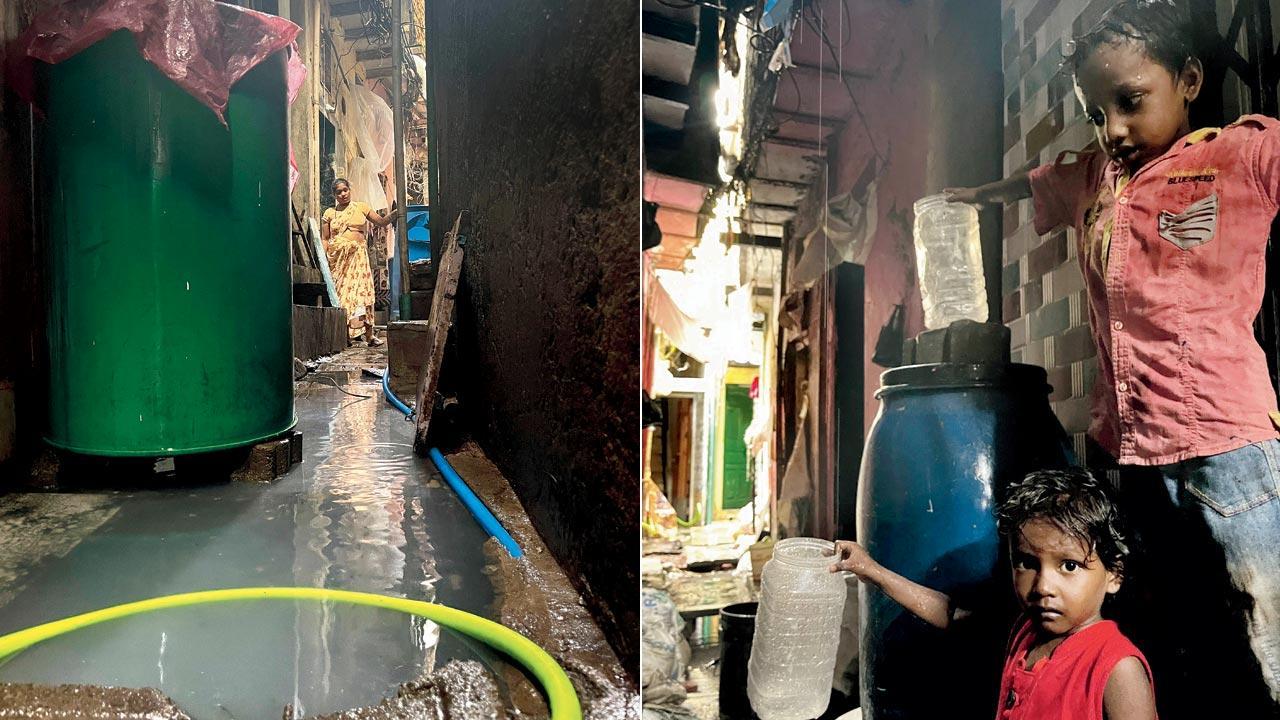
Sai Garden Chawl in Dharavi that gets flooded every monsoon. Pics/Rian Khorana
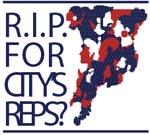 Before the arrival of the monsoon, Dharavi residents started setting up a drainage line to prevent sewage water from entering their homes. While it’s the BMC’s duty to execute such tasks, the inordinate absence of corporators has left them with no choice but to take matters into their own hands.
Before the arrival of the monsoon, Dharavi residents started setting up a drainage line to prevent sewage water from entering their homes. While it’s the BMC’s duty to execute such tasks, the inordinate absence of corporators has left them with no choice but to take matters into their own hands.
ADVERTISEMENT
Residents have no hope in the BMC as officials have been turning a deaf ear to their repeated complaints. They finally crowd-sourced the money to fund the effort themselves. Such stories are commonplace in every slum due to the absence of corporators since March 2022.
Members of 21 families residing in Sai Garden Chawl opposite Dharavi bus depot contributed Rs 1,500 each to pay for the cement and tiles for the drain. “I used to do masonry work in my village and that’s how I’m fixing it, otherwise that would have been another expenditure,” said Naushad Shah, an electrician.
Sewage problem
Residents claimed that the sewage problem has persisted for three to four months, creating a health nuisance. Now, the rains have exacerbated the situation. “Earlier, we used to contact the corporator but now every official passes the buck. We complained to the local MLA and G North ward office, but they said no funds are available,” Shah said.
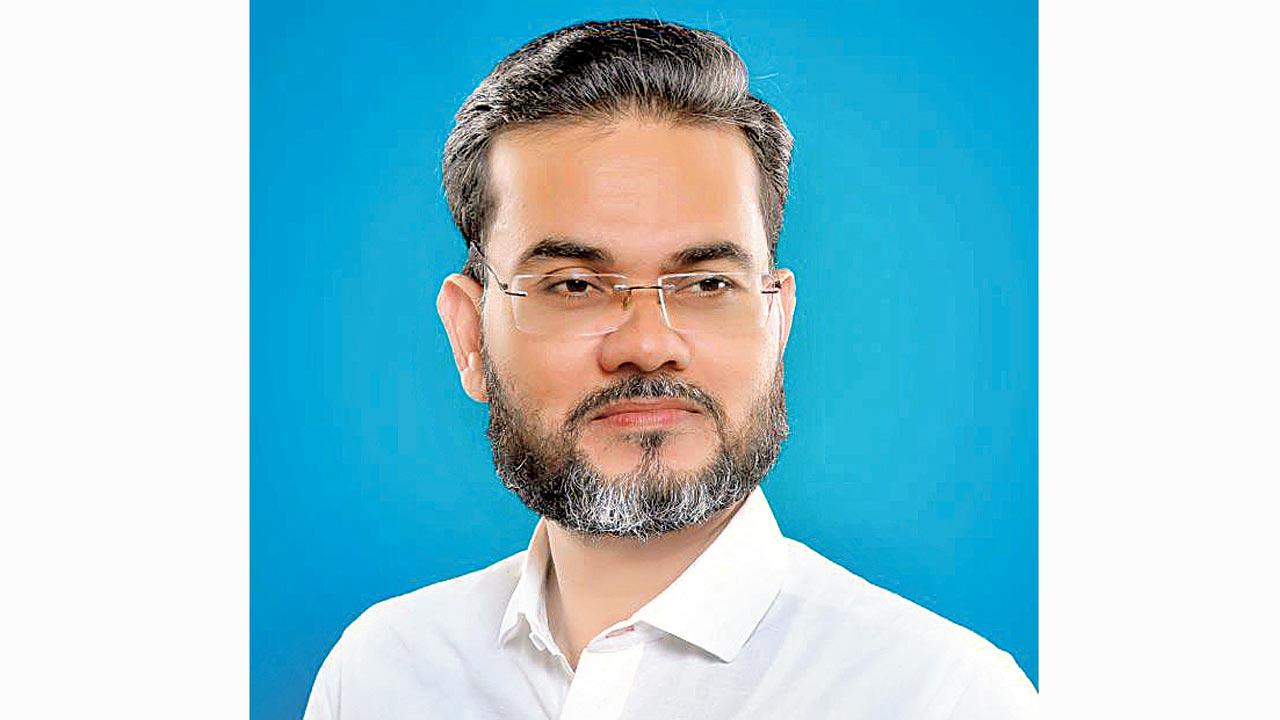 Muzib Atique, Govandi resident
Muzib Atique, Govandi resident
Residents have also complained that human faeces have entered the homes at times.
“When it rains in the middle of the night, children wake up a couple of times to help their families clear the water from their homes. This impacts our concentration in class,” said Shifa Khartoon, a young girl who lives in the slum.
‘Corporators essential’
Muzib Atique, who resides in Govandi, said, “We need corporators. They are our voices. This area is a slum. We face various problems here every day involving public toilets, roads, garbage and water. The level of education among the citizens here is negligible. Therefore, they are less likely to appeal to the administrator to solve their problems.”
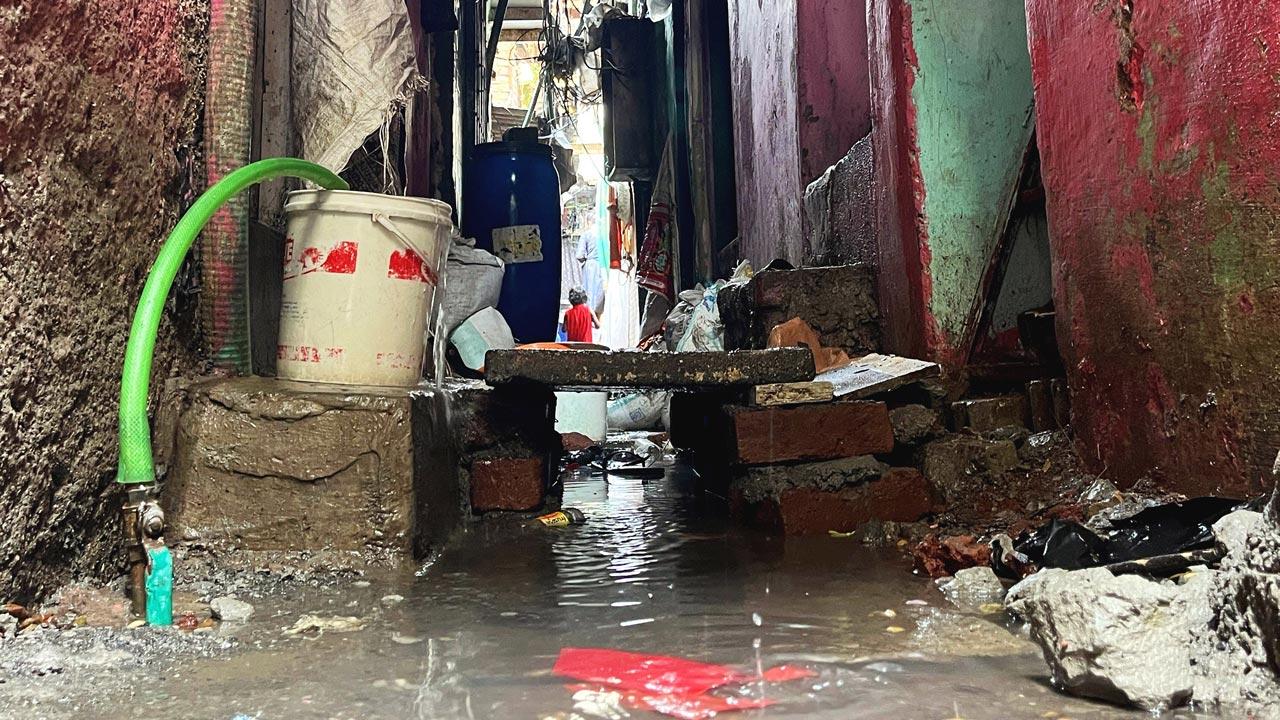 Sai Garden Chawl opposite Dharavi bus depot, which is plagued by flooding and sanitation issues. Pics/Rian Khorana
Sai Garden Chawl opposite Dharavi bus depot, which is plagued by flooding and sanitation issues. Pics/Rian Khorana
He added, “Even now, we are facing problems. We meet civic officials many times to solve them. We don’t get a good response at all times and dealing with civic officials is time-consuming. Corporators are the medium between the administration and citizens. They play a vital role, especially in the slum area.”
Dinesh Sharma from Bhandup West echoed these sentiments. “We face water supply issues. We met various civic officials but the matter has not been resolved. It is not possible for ordinary citizens to leave their job and meet civic officials daily. As corporators are also residents, one can meet them anytime. Also, as they wield democratic powers, they help solve most local issues,” said Sharma.
‘Contact with BMC better’
In Neel Kanteshwar chawl at Mankhurd, which has legal status, residents have to cook food near a gutter where mosquitoes breed. To prevent water from entering their homes, they have spent from their own pockets to remedy the situation as their kids were being affected.
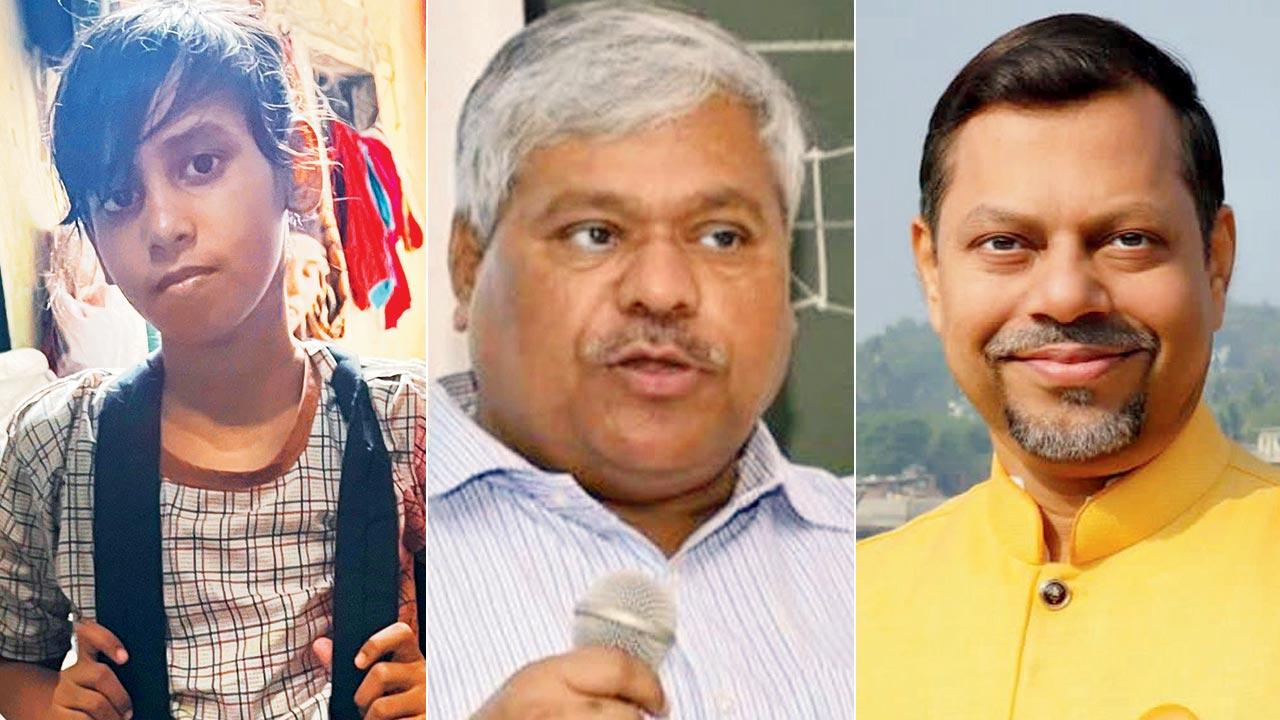 Shifa Khartoon, a resident of Sai Garden Chawl; retired BMC officer Anand Jagtap; and Rajhans Tapke, a resident of Versova Koliwada
Shifa Khartoon, a resident of Sai Garden Chawl; retired BMC officer Anand Jagtap; and Rajhans Tapke, a resident of Versova Koliwada
One of the community leaders, Rajendra Khandagle, said, “The BMC and courts have passed an order to fix these issues, but if the corporator was still in charge, it would not have happened. They visited once or twice after several complaints were made. Direct contact with the BMC is better. However, its been three months since the order has been passed but action is yet to be taken.”
Deepak Prabhu, a resident of the Koldongri locality in Andheri, said, “We have been facing water shortage for the last four to five days. We called our local ex-corporator and though he is not officially responsible, he tried to contact the BMC officers concerned. Instead of making the rounds of the ward office or dialling helplines in vain, going to the local corporator proves fruitful.”
‘They are part of democracy’
Rajhans Tapke, a resident of Versova Koliwada, has a different viewpoint. “There is not much difference in our day-to-day life even if there are no corporators. Yes, some issues are not solved but they were not even solved by corporators in the past. However, it should not be said that corporators should not exist. They are a part of democracy. Corporators are needed for many tasks like making civic policies citizen-oriented.”
Anand Jagtap, a retired BMC officer on special duty in charge of slum sanitation and solid waste management, alleged, “Some corporators give more importance to contractors than the common public. Community-based organisations (CBOs) were created in 1997 under the BMC so that community members could participate in the problem-solving process. But some corporators pressured their party workers in CBOs to take control over resources such as public toilets.”
Jagtap added, “Only if people from the slum are stakeholders and take up ownership of operations and maintenance, things can change as they know the topography and issues of the people better. The majority of corporators’ and MLAs’ funds are put into slums but we don’t see the impact on environmental sanitation and results as contractors are in charge of the work. They hire unqualified workers and do not take action even in case of poor work. Administrative officers also have the same approach.”
Social worker’s opinion
On the other hand, Vishal Salunkhe, a social worker who currently works in the field of nutrition, said, “As social workers, we sometimes require a hall to address our beneficiaries. Corporators allow us to use them free of cost. Using a hall usually costs R10,000 a day in a place like Dharavi; outside, it is even more.”
He added, “If we want to help a specific member of the community and cannot locate them, their volunteers help us. We are managing somehow in the absence of corporators but their presence makes the process more efficient and faster.”
21
No. of families that raised funds for drainage line
Why elections are delayed
The terms of civic bodies ended in 2020. Holding elections back then was not possible due to COVID and the state government decided to appoint municipal commissioners as administrators. In March 2022, the term of the Mumbai and Thane civic bodies ended. Around 23 municipal corporations across the states are without corporators. Two cases related to civic polls are pending in the Supreme Court. The polls can’t be held unless they are decided.
Readers respond Pervyyn Kavarana,
‘BMC corporators are rarely visible to citizens. Their absence has made a positive difference to the exchequer. The populace prefers to contact ward officers to resolve their woes.’
Melville X D’Souza,
‘Kudos to mid-day for focusing on the functioning of the BMC in the absence of corporators. ‘Do you miss them?’ is a very pertinent question, but the answer is, no! In fact, corporators are a drain on the economy. The ideal thing should be for every ward officer to be made responsible for the upkeep of his ward, without partiality.’
Maya Hemant Bhatkar,
‘mid-day’s new series is welcome. It is amusing that the BMC has been running without elected corporators for more than a year and people are compelled to reach out to ward offices where they are shooed away. Corporators are a bridge between citizens and the administration and they are required.’
Iqbal Gilani Mansuri,
‘The councillor is a mediator between the people and the corporation but social media and BMC apps have made it very easy to interact with the civic officials and get work done.’
Tweet talk
MunnaKaSwamiBola:
We definitely need corporators but they should be well-educated, graduates. They must also possess basic info on politics and the duties and jobs to be performed by public representatives. They should not be puppets.
Global Citizens Forum:
They are not missed at all. Just another layer of bureaucracy created by British-era administration.
MinalKBhatia:
Officers are doing their work diligently. In fact, there is less headache of taking other 100 permissions.
Harshad Vikhe Patil:
The absence of elected representatives in wards is causing inconvenience in resolving day-to-day governance issues.
VMPworld:
Neither do citizens miss corporators, nor do they know that the BMC has been run by an administrator for a year now. Whether or not there is a corporator, the bottom line is that no one hears citizens.
 Subscribe today by clicking the link and stay updated with the latest news!" Click here!
Subscribe today by clicking the link and stay updated with the latest news!" Click here!







